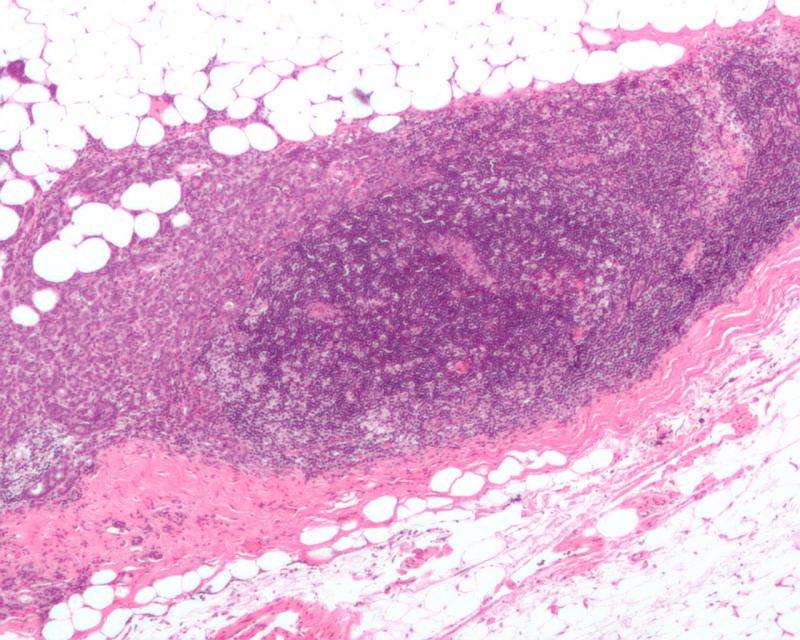Micrograph showing a lymph node invaded by ductal breast carcinoma, with extension of the tumour beyond the lymph node. Credit: Nephron/Wikipedia
A team of researchers with members from institutions in the U.S., Sweden and Taiwan has developed an artificial intelligence system for predicting breast cancer years before tumors appear. In their paper published in the journal Science Translational Medicine, the group describes how they developed and trained their system and how well it worked when tested.
Artificial intelligence applications have made inroads to medical diagnostics in recent years—they can be trained to look for cancer or other conditions by training them on thousands of examples. Once trained, many have demonstrated good performance in real-world applications. In this new effort, the researchers have taken the science further by building an AI application to detect conditions in tissue that may lead to cancer in the future.
For many years, medical scientists have been looking for ways to determine breast cancer risk. Some DNA studies have led to the discovery of variants that increase the risk of developing the disease. Other studies have used a variety of factors along with analytics to predict risk, but thus far, they have not proven to be accurate enough. In this new effort, the researchers used mammogram data for women who had been screened multiple times over several years. They trained the system to study the mammogram histories of women that had eventually developed breast cancer and then used the system to predict breast cancer risk of women in the future based on their own mammogram historical data.
Testing of the system, which the team named Miria, occurred over five years—enough time to determine if women tested at the beginning of the study developed breast cancer or not. The researchers found that Mirai had correctly predicted the development of cancer in 41.5% of those women who had gone on to develop tumors within five years. They note that other prediction methods have tested closer to 36%. Testing included women from several races and the team found that Mirai worked equally well on all of them, suggesting that the system could be used on a diverse population.
More information: Adam Yala et al. Toward robust mammography-based models for breast cancer risk, Science Translational Medicine (2021). DOI: 10.1126/scitranslmed.aba4373
Journal information: Science Translational Medicine
© 2021 Science X Network
























